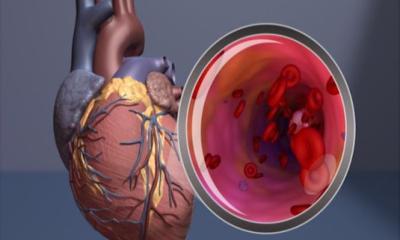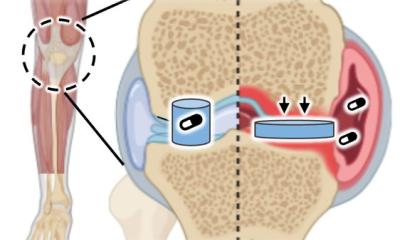Migrants suffer pain more intensely
Cultural differences in pain perception and their consequences for pain therapy were discussed today at the 7th EFIC Congress: Pain in Europe VII. More than 4,000 experts from all over the world are currently gathered in Hamburg (D) to discuss the latest developments in pain research and therapy.
Ulla Kellner, Master of Science in Pain Management (Zurich, CH) presented a study on the importance of migration backgrounds with respect to the outcome of an interdisciplinary pain program. The psychological health status and pain intensity of 118 chronic pain patients from the Zurich area – 50 with migration backgrounds – was compared by using a set of questionnaires at baseline, after the intervention, and at 3, 6 and 12 month follow-ups.
“Statistically, both groups differed significantly for all variables, and patients with migration backgrounds always had worse cards, unfortunately,” Ulla Kellner explained. Patients without a migration background had significantly better psychological functioning at all time points. They improved on all outcome variables in the short and long term. Patients with migration backgrounds had significantly higher values for pain intensity and catastrophising. Depression and anxiety levels always remained in the range of clinically relevant pathopsychological disorders. “One result was a real eye-opener for us: migrants not only improved less in the short term, but all variables regressed to baseline values at the 12-month follow-ups,” said Ms. Kellner.
More intensive and culture-specific programs needed
Of course, there are big differences among migration groups. The results of other Swiss studies about migrants from Germany, Liechtenstein and Austria show that these participants recover as well as natives do. But the participants of Ms. Kellner’s study have to cope with another situation. “They came for the most part from the former Yugoslavia and could have had traumatic experiences or a forced migration due to war. They show low education levels and are often unable to work,” Ulla Kellner reported. “The combination of these psychosocial stress factors can increase the patient’s burden and lead to clinically relevant psychopathologies like anxiety or depression – or they can maintain already existing psychopathologies.” She presumed that the pain program offered was not intensive and culture-specific enough and suggested a specially designed program for foreign language migrants. “To improve their health in the long run, these patients would need more intensive psychological and psychotherapeutic support than we can offer within our program. Additionally, they would need intensive social and economic advice and support to help them reintegrate into the employment market,” Ulla Kellner stressed.
About EFIC and "Pain in Europe" - The European Federation of IASP® chapters (EFIC®) is a multidisciplinary professional organisation in the field of pain research and medicine, consisting of the 35 so-called chapters of the International Association for the Study of Pain (IASP®), which are the IASP approved official National Pain Societies in each country. Established in 1993, EFIC’s constituent chapters represent Pain Societies from 35 European countries and close to 20,000 physicians, basic researchers, nurses, physiotherapists, psychologists and other healthcare professionals across Europe, who are involved in pain management and pain research. EFIC’s aims are to advance research, education, clinical management and professional practice related to pain, and to serve as an authoritative, scientifically based resource concerning policy issues related to pain and its management. “Pain in Europe VII” in Hamburg (21-24 September 2011) is the 7th EFIC Congress since 1995. EFIC Congresses have become a popular forum in Europe attracting over 4,000 participants in 2011. Congress participants are mainly from Europe, but with delegates from more than 75 countries worldwide, the Congress can be considered the major international educational exchange on pain issues of this year 2011.
22.09.2011





